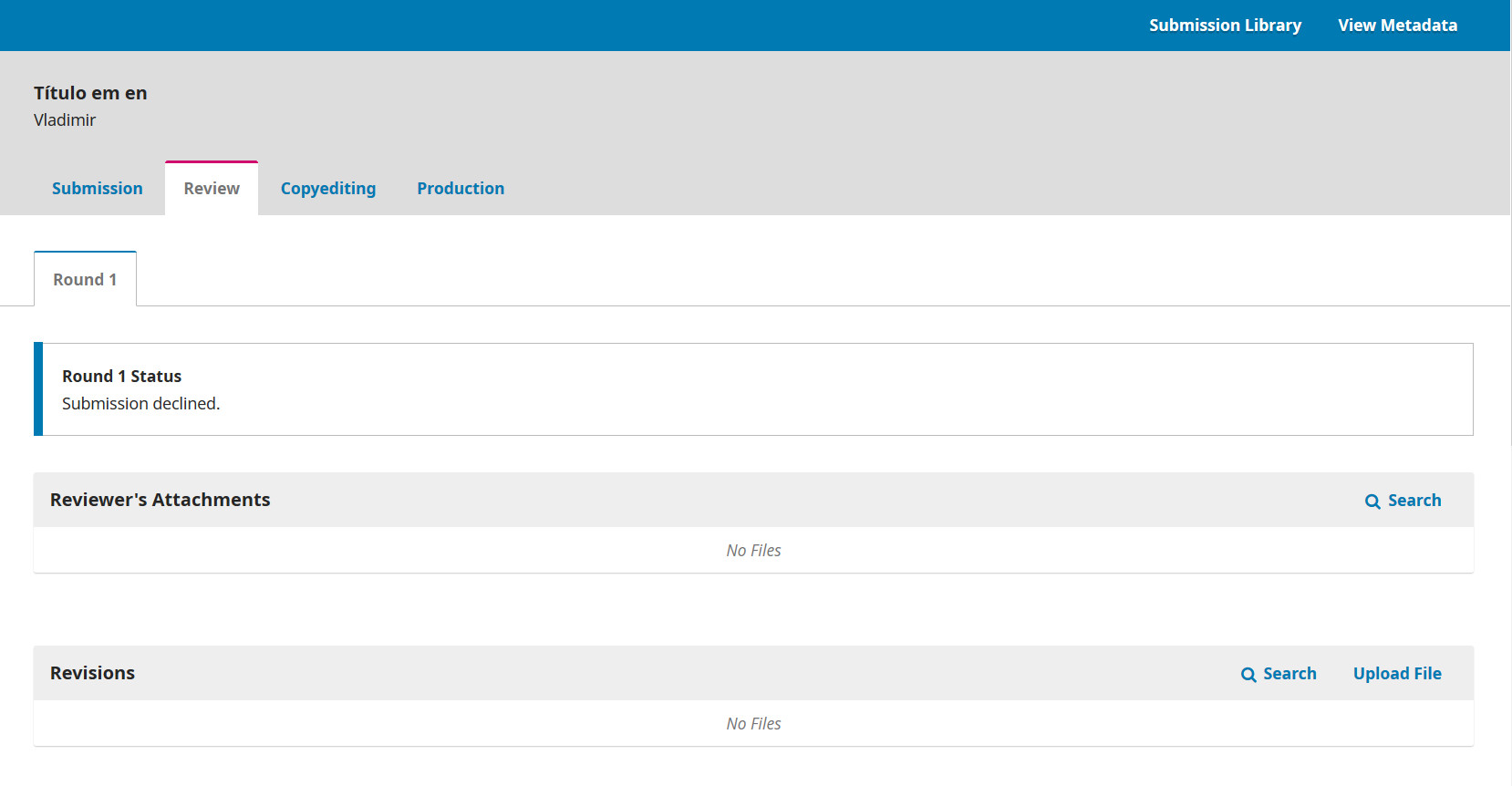I am using OJS 3.1.2 and for some reason the email logs with editorial decisions do not show up on the author’s Dashboard after a submission has been declined. The editorial decision was recorded correctly, the email was sent and received. But when the author checks the ‘Review’ tab there is nothing under “Round 1 Status: Submission Declined”, as shown in the screenshot below.
Note that this was not an initial decline: there was one external reviewer who accepted the task, submitted the review and had his work acknowledged before the submission was declined.
Digging at the code I noted that its is expected that records at the email_logs table have a corresponding record at the email_log_users table. But whereas the first table has the the correct record for the editorial decision email, the second table is empty. And indeed, if I add the missing record manually to the email_log_users table, the log pops up in the author dashboard.
Could you provide me any clue to what may be causing this issue?
I may also add that the we do not use any review forms, and that the reviewer did not upload any files. Also, the text that was typed by the reviewer in the default review boxes was not added to the email, although I clicked on the button to add the review to the email.
Best regards,
Vladimir Vieira
